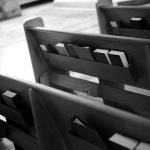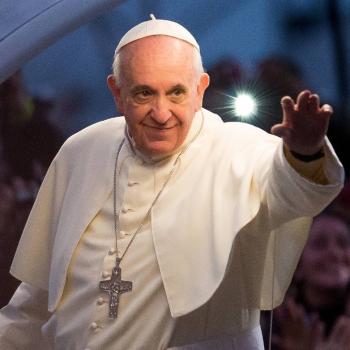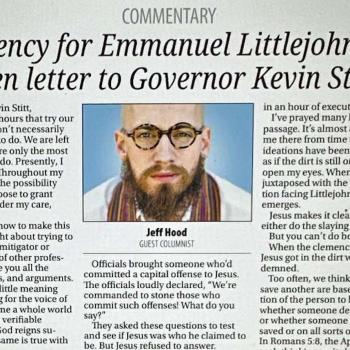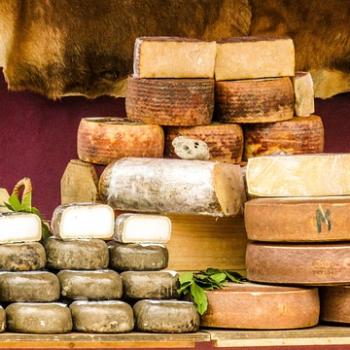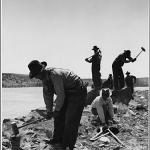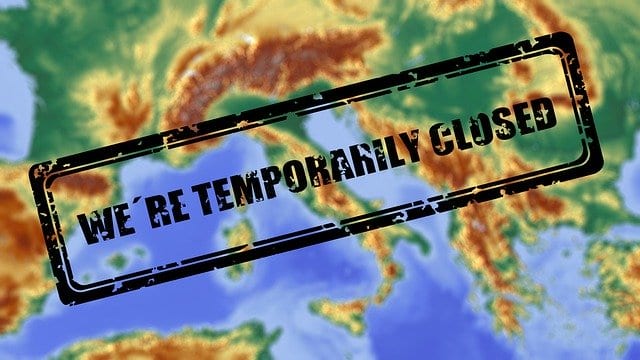
I keep saying I hope that COVID-19 just goes away, and it keeps on not going away. The virus has officially been declared a pandemic. The number of people infected is growing exponentially by the day.
The entire country of Italy is currently on lockdown, all public Masses in Rome have been cancelled and the churches are closed. This is terrible, but our Holy Father is trying to make it a little more bearable by livestreaming Mass from the Vatican for us. Here in the United States, individual dioceses are responding to the risk in less drastic ways so far. Most places seem to be just reminding people that they ought to stay home from Mass if they’re sick, stopping the Kiss of Peace and the distribution of Holy Communion under the species of Blood, and ordering everyone to receive Holy Communion in the hand only and not on the tongue.
I want to take a moment to renew my plea that any churches restricting access to the Precious Blood stock up on some low-gluten Hosts that are licit for Mass and safe for most Celiac’s patients; you can consecrate them on a separate paten and store them in the tabernacle in a separate pyx, and then Catholics with food allergies will be far less likely to be left out. You can buy some here.
Traditionalist Catholics are pretty upset about the no-Communion-on-the-tongue thing, and I’m not going to say I don’t empathize as I’ve already mentioned. I feel weird receiving Communion on the hand. But I see notorious trads talking about how they’d “rather have coronavirus” than receive Christ on the hand, as if they’re the only ones taking a risk. They seem to think they’re being brave by saying that. They don’t seem to understand that by taking that risk and sticking out their tongue at the priest, they just might actually be putting the PRIEST at risk– and, through that possible contagion, anybody else that the priest goes on to touch. Most people who catch COVID-19 will be contagious long before they realize they have it, and by then it’s too late. Minimizing physical contact, particularly with bodily fluids, isn’t just so they, personally, won’t get sick, but for the sake of everybody else.
And then there are the people who are blatantly calling for us to take foolish risks. A certain talking head I’m not going to call out by name here is calling the bishops who cancel Masses and close churches cowards. She seems to think she’s being courageous, as if she’s the only one who will be hurt if she encourages people to get together in crowds during a pandemic. It’s not very pro-life of her.
I’m also seeing people suggesting that we should have more trust in God and go on performing the pious acts we’re accustomed to performing in the exact same way, and hopefully God will come through with a miracle if we do. We just go on crowding together and receiving on the tongue and dipping hands in the same bowl of Holy Water and God will save us from the consequences.
When suggestions like these are being seriously offered, I think we Christians need to look at the example of Christ in the Gospel.
There are two Gospel passages I want to call to your attention. The first is from the Gospel According to Matthew: Then the devil took him to the holy city and had him stand on the highest point of the temple. “If you are the Son of God,” he said, “throw yourself down. For it is written: “‘He will command his angels concerning you, and they will lift you up in their hands, so that you will not strike your foot against a stone.’ Jesus answered him, “It is also written: ‘Do not put the Lord your God to the test.’”
The second is from the Gospel According to John: So Judas got a band of soldiers and guards from the chief priests and the Pharisees and went there with lanterns, torches, and weapons. Jesus, knowing everything that was going to happen to him, went out and said to them, “Whom are you looking for?” They answered him, “Jesus the Nazorean.” He said to them, “I AM.” Judas his betrayer was also with them. When he said to them, “I AM,” they turned away and fell to the ground. So he again asked them, “Whom are you looking for?” They said, “Jesus the Nazorean.” Jesus answered, “I told you that I AM. So if you are looking for me, let these men go.” This was to fulfill what he had said, “I have not lost any of those you gave me.”
Now, Jesus was not a coward. He did take plenty of risks during His life on Earth. He touched people with infectious diseases. He defended adulteresses and other social outcasts. He spoke truth to power. He brought back His friend, Lazarus, from the dead, even though He knew full well that this action would make His enemies much more likely to try to have Him killed. All of those things are dangerous, risky behavior, and He did them when He saw He had the chance to accomplish something good for somebody else. He kept right on doing those risky things until He died, and even that didn’t stop Him.
But when He was asked to take an enormous risk, not to help anyone but to show off how pious He was and how much He trusted that a miracle would happen, he flat out refused. “You shall not put the Lord, your God, to the test.” Don’t play chicken with God.
And when He was in a situation where other people were the ones at risk, He acted to keep them safe. “I told you that I am He, so if you are looking for Me, let these men go.”
Jesus took risks and got Himself into trouble whenever that was necessary to preach the Gospel and help people. He specifically refused to do something reckless as a show of piety to try and force the Father to work a miracle. And He did everything He could to avoid putting other people in danger.
We who are followers of Christ, are supposed to do as He did.
In your life, you will run into situations when you are supposed to take a risk because it might help someone spiritually, emotionally or physically, and you should do it. That will look different in everybody’s life, and you have to exercise prudence, but prudence isn’t the same as selfishness. You and I are absolutely called to do heroic deeds, and being heroic often hurts. Sometimes it kills you, but that doesn’t make being heroic optional.
But we are NOT called to be reckless in a way that puts other people in danger. That’s the opposite of an act of charity; that’s just hurting people. And we are absolutely not to put on a show in order to see if God works a miracle. That’s self-aggrandizing superstition.
COVID-19 is a pandemic. I hope that everyone takes every possible precaution and that those precautions work so that it’s over with quickly and few more people die. But no matter what happens, you and I are probably going to be called to repent of any way we’ve been cowardly so far, to be heroic in any way we’re called to be, and to take risks. Maybe the risk you need to take is to realize you’ve been selfish in how much toilet paper and hand sanitizer you’re stocking up on and bring some of it to a homeless shelter or a food pantry that also distributes toiletries. Maybe the risk will be to continue handing out care packages to homeless people even though they’re at higher risk of catching COVID-19 and you’re scared of them. Maybe the risk will be totally different. Perhaps God is calling you to overcome your scruples and anxiety by holding out your hands for Holy Communion, even though you’re much more comfortable receiving on the tongue.
It could be that things will get very bad indeed, downright apocalyptic-looking, for a time. I sure hope not. I pray not. But if we find ourselves in a full-blown catastrophe, Christians are going to be the ones who have the least excuse not to take huge risks. You and I had better be ready to walk right into a crowd of plague victims to provide what comfort we can, while the rest of society is running away screaming. If God will send a miracle to save us from catching COVID-19, may He save us. But our duty is clear even if He doesn’t.
But committing a reckless act that puts other people in danger just to show off your piety is wrong. It’s pride, it’s putting the Lord your God to the test, and it’s putting your neighbor at risk of harm.
It’s already the rule that if you are sick with a contagious disease, not only is your Sunday obligation waived, you actually shouldn’t go to Mass. That’s nothing new; it’s always been the rule. Now, in places where many people are sick with a particularly contagious illness and there’s a remarkably high risk of passing it on before you realize you have it, Sunday Masses in some areas will be cancelled and the churches closed. That’s just applying the same rule with a broader brush. Where you live, it could be that Masses aren’t cancelled but they’ve adopted some new practices, like not shaking hands at the Kiss of Peace and not receiving Holy Communion on the tongue, or even staying home from Mass if you’re sick or if the place you live goes into lockdown. That might be hard for you, because you’re so accustomed to doing something else. But it’s a sacrifice God is calling you to make.
He is not calling you to be reckless and endanger yourself or others for no reason. He’s calling you to imitate Him.
Let’s all work on that in the coming days.
In fact, let’s all work on that even when there’s not a pandemic as well.
Image via Pixabay
Mary Pezzulo is the author of Meditations on the Way of the Cross.
Steel Magnificat operates almost entirely on tips. To tip the author, visit our donate page.


